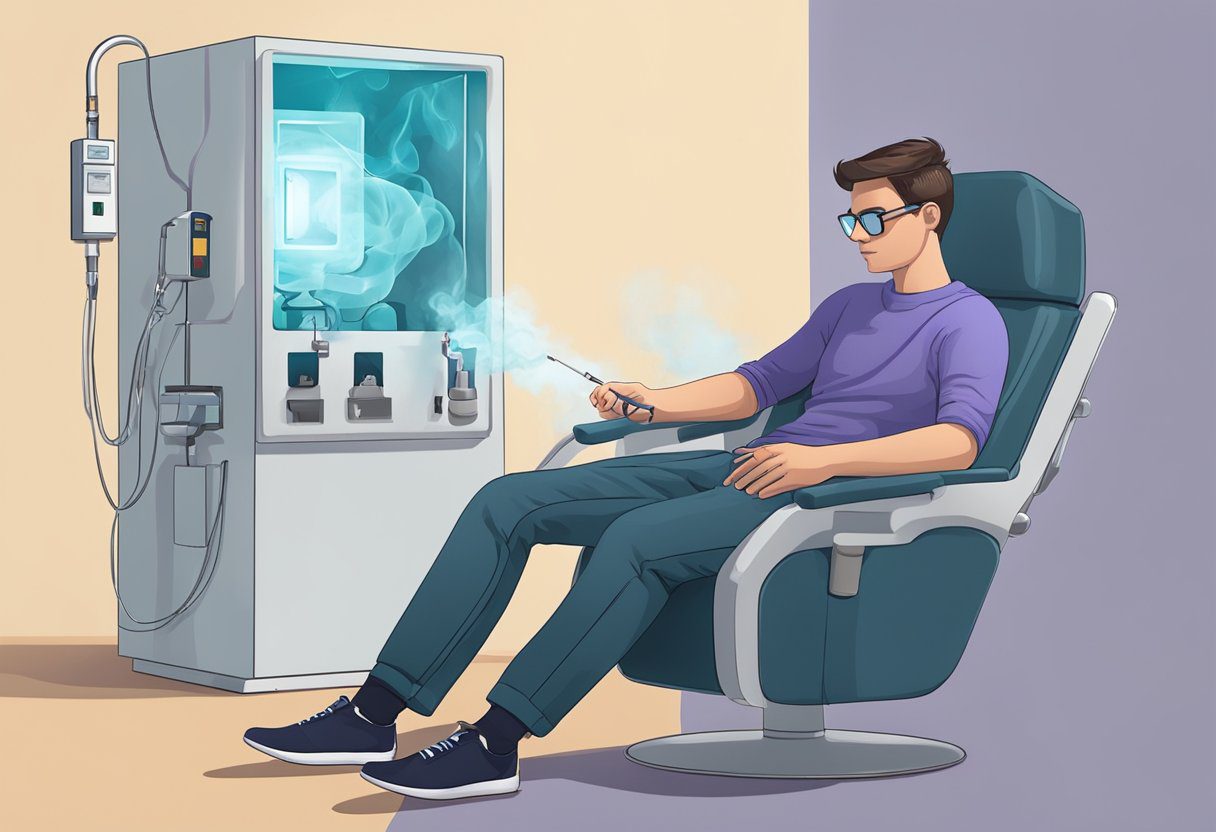Vaping and Plasma Donation: What Vapers Need to Know
Vaping has become increasingly popular in recent years as a less harmful alternative to smoking traditional cigarettes. However, there are still many questions surrounding the impact of vaping on blood donation, specifically plasma donation. Plasma, a component of blood, is used to treat a variety of medical conditions and is in high demand. This article will explore the relationship between vaping and plasma donation, including eligibility requirements, regulations, and frequently asked questions.
Understanding Vaping and Its Impact on Blood Donation
Vaping involves inhaling vapour produced by an electronic cigarette or other nicotine vaping product. While vaping is considered less harmful than smoking traditional cigarettes, it still has an impact on the body. Nicotine, the primary ingredient in most vaping liquids, can affect blood pressure and heart rate, which can impact plasma donation eligibility. Additionally, some vaping products contain other harmful chemicals that can affect the quality of donated plasma.
Regulations and Public Health Perspectives
In the UK, regulations are in place to ensure the safety and quality of donated plasma. The NHS Blood and Transplant service provides guidelines for plasma donation eligibility, which includes restrictions on nicotine use. Public health officials also recommend refraining from vaping for a period of time before and after donating plasma. These regulations and guidelines are in place to ensure the safety of both donors and recipients.
Contents
- 1 Understanding Vaping and Its Impact on Blood Donation
- 2 Regulations and Public Health Perspectives
- 3 Plasma Donation Eligibility and Vaping
- 4 Frequently Asked Questions:
- 4.1 Is it permissible to donate plasma after using e-cigarettes?
- 4.2 What are the eligibility criteria for donating blood?
- 4.3 How long should one wait to donate plasma after getting a tattoo?
- 4.4 What is the recommended frequency for plasma donation?
- 4.5 Does the process of donating plasma contribute to the detoxification of the body?
Key Takeaways:
- Vaping can impact plasma donation eligibility due to the effects of nicotine on blood pressure and heart rate.
- Regulations and guidelines are in place to ensure the safety and quality of donated plasma, including restrictions on nicotine use.
- Public health officials recommend refraining from vaping before and after donating plasma to ensure the safety of both donors and recipients.
Understanding Vaping and Its Impact on Blood Donation
The Basics of Vaping and E-Cigarettes
Vaping is the act of inhaling and exhaling the vapour produced by an electronic cigarette or similar device. E-cigarettes work by heating a liquid, often containing nicotine, to create a vapour that is then inhaled. The liquid used in e-cigarettes can come in a variety of flavours and nicotine strengths.
Health Risks Associated with Vaping
While e-cigarettes are marketed as a safer alternative to traditional cigarettes, they still contain harmful chemicals such as nicotine. Nicotine is an addictive substance that can raise blood pressure and heart rate.
Vaping vs Smoking: Differences in Health Outcomes
Compared to smoking traditional cigarettes, vaping has been shown to have fewer harmful health effects. However, vaping is not risk-free and can still have negative health consequences. According to a study by King’s College London, “nicotine vaping is far less harmful than smoking cigarettes in the short and medium term but is ‘not risk free’ and more long term studies of effects are needed.”
Plasma Donation and Vaping
If you are a vaper and are considering donating plasma, there are a few things you need to know. The American Red Cross states that vapers are eligible to donate blood and plasma as long as they meet the other eligibility requirements. However, it is important to note that some organisations may have their own policies regarding vaping and blood donation, so it is always best to check with the organisation before donating.
In conclusion, while vaping is a safer alternative to traditional smoking, it is not risk-free and can still have negative health consequences. Vapers are eligible to donate plasma as long as they meet the other eligibility requirements, but it is important to check with the organisation beforehand.
Regulations and Public Health Perspectives
Government Stance on Vaping and Tobacco Products
The UK government recognizes that e-cigarettes are significantly less harmful than smoking and are a useful tool for smokers who want to quit. According to the UK government website, vaping products are regulated under the Tobacco and Related Products Regulations and the General Product Safety Regulations. These regulations ensure that e-cigarettes meet safety and quality standards and that they are not marketed to young people. The Medicines and Healthcare products Regulatory Agency (MHRA) is responsible for ensuring that e-cigarettes meet these standards.
Impact of Vaping on Public Health
Public Health England (PHE) has conducted several studies on the impact of vaping on public health. According to the 2021 evidence update summary commissioned by PHE, vaping is significantly less harmful than smoking and has helped many smokers quit. The report also notes that there is no evidence to suggest that vaping is a gateway to smoking for young people.
Vaping Products Quality and Safety Standards
To ensure the quality and safety of vaping products, the UK government has implemented regulations that require manufacturers to provide detailed information about the ingredients and emissions of their products. Additionally, the MHRA conducts regular inspections of e-cigarette manufacturers to ensure that they comply with safety and quality standards.
Overall, the UK government’s stance on vaping is positive, recognising its potential as a tool to help smokers quit. However, regulations are in place to ensure that vaping products meet safety and quality standards and are not marketed to young people.
Plasma Donation Eligibility and Vaping
Criteria for Plasma Donation
Before donating plasma, it is important to know the criteria for eligibility. According to the NHS Blood and Transplant, plasma donors must be at least 17 years old, weigh at least 50 kg, and meet other specific requirements.
Effects of Vaping on Plasma Donation
Vaping can have an impact on plasma donation eligibility. Nicotine, one of the main ingredients in e-liquid, can affect blood pressure and haemoglobin levels, which are important factors in plasma donation. It is recommended that vapers disclose their vaping habits to the medical staff before donating plasma.
Guidelines for Vapers Who Want to Donate Plasma
If you are a vaper who wants to donate plasma, it is important to follow these guidelines:
- Disclose your vaping habits to the medical staff before donation.
- Wait at least 24 hours after vaping before donating plasma.
- Do not vape immediately after donating plasma.
- If you are taking any medication for addiction or other health conditions, disclose this to the medical staff before donation.
It is important to note that the effects of vaping on plasma donation are still being studied, and further research is needed to fully understand the impact of vaping on plasma donation eligibility.
Overall, vapers who want to donate plasma should be aware of the potential effects of vaping on plasma donation eligibility and follow the guidelines provided by the medical staff. By doing so, they can help ensure that their plasma donations are safe and effective for those in need.






Leave a Reply